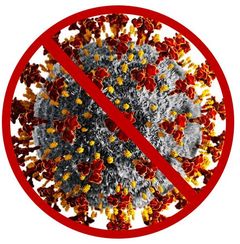
mRNA Technology in COVID-19 Vaccine Production
Experts comment on the significance of mRNA (messenger RNA) technology in developing COVID-19 vaccines, as well as vaccines against other viral infections.
Episodes in this series

Click through this short slide show for highlights of current Centers for Disease Control and Prevention recommendations for vaccination against COVID-19 that are discussed in the video. A text summary of the video appears below that.
This is a synopsis/summary of a panel discussion involving Tina Q. Tan, MD and Rodney Rohde, PhD, MS, SM(ASCP)CM.
The conversation between Drs Tan and Rohde explores the transformative impact of mRNA vaccine technology, particularly in responding to different viral strains swiftly. The speakers acknowledge the historical challenges in developing vaccines, such as the prolonged time required for traditional methods, as seen in flu vaccine production. They celebrate the mRNA technology, emphasizing that it has been available for decades and its recent acceleration during the COVID-19 pandemic based on streamlined regulatory processes.
The mRNA technology is explained as enabling the delivery of messenger RNA to instruct the body to produce specific proteins, like the spike protein in the case of COVID-19. The speakers express enthusiasm about the potential of mRNA technology not only for addressing future viral outbreaks but also for creating effective vaccines against diseases like cancer and older foes, such as tuberculosis, that were challenging in the past.
They emphasize the mRNA technology allows the body's immune system to respond more naturally and effectively. The conversation touches on the hope that wider use of this technology has the potential to even eliminate the worry about certain cancers in future generations. The speakers encourage spreading the message that mRNA technology is a positive advancement, dispelling misconceptions that because it is novel, it is dangerous.
The discussion delves into the ability to create combination vaccines using the mRNA platform, citing the development of a COVID-RSV-flu vaccine. This innovation is hailed for the potential to increase vaccine acceptance among adults who prefer a single shot in a clinic visit. The potential for a universal flu vaccine, addressing genetic shifts and drifts in viruses, is also highlighted, presenting a promising solution to annual flu vaccine updates.
The speakers anticipate a future where vaccines provide longer-lasting protection, potentially 3 to 5 years, addressing hesitancy and improving vaccine coverage. They envision a transformative era in genomic and proteomic advancements, expressing optimism about the positive impact mRNA technology can have on public health.
Video synopsis is AI-generated and reviewed by PatientCare editorial staff.
Newsletter
Enhance your clinical practice with the Patient Care newsletter, offering the latest evidence-based guidelines, diagnostic insights, and treatment strategies for primary care physicians.


































































































































